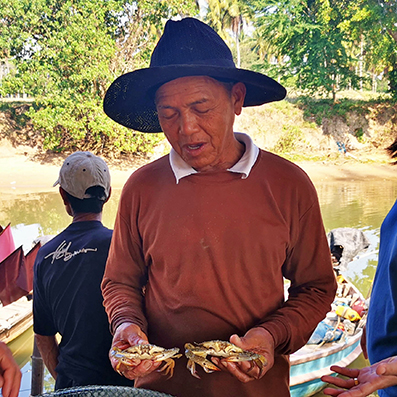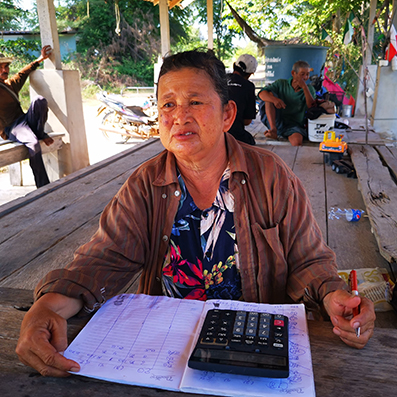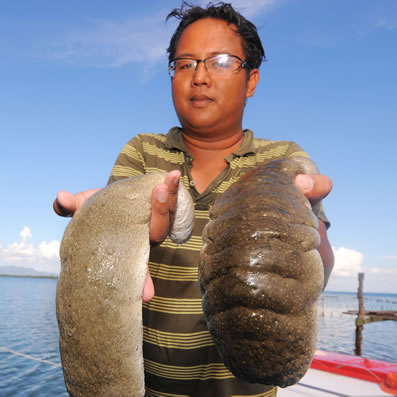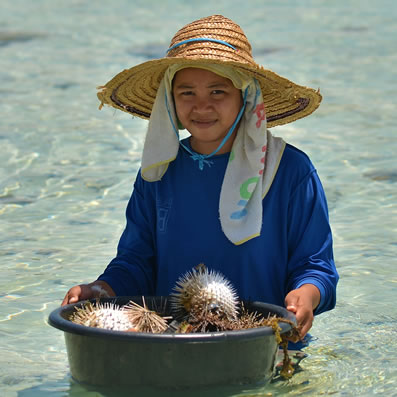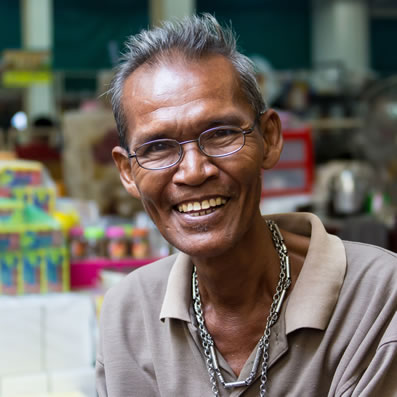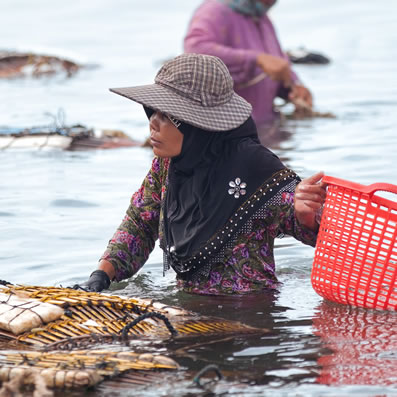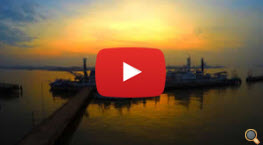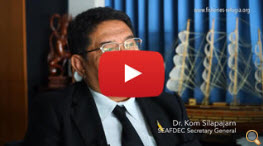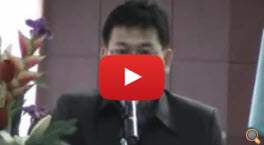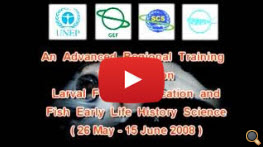THE SOUTH CHINA SEA FISHERIES REFUGIA INITIATIVE
FISHERIES REFUGIA PROJECT SITES
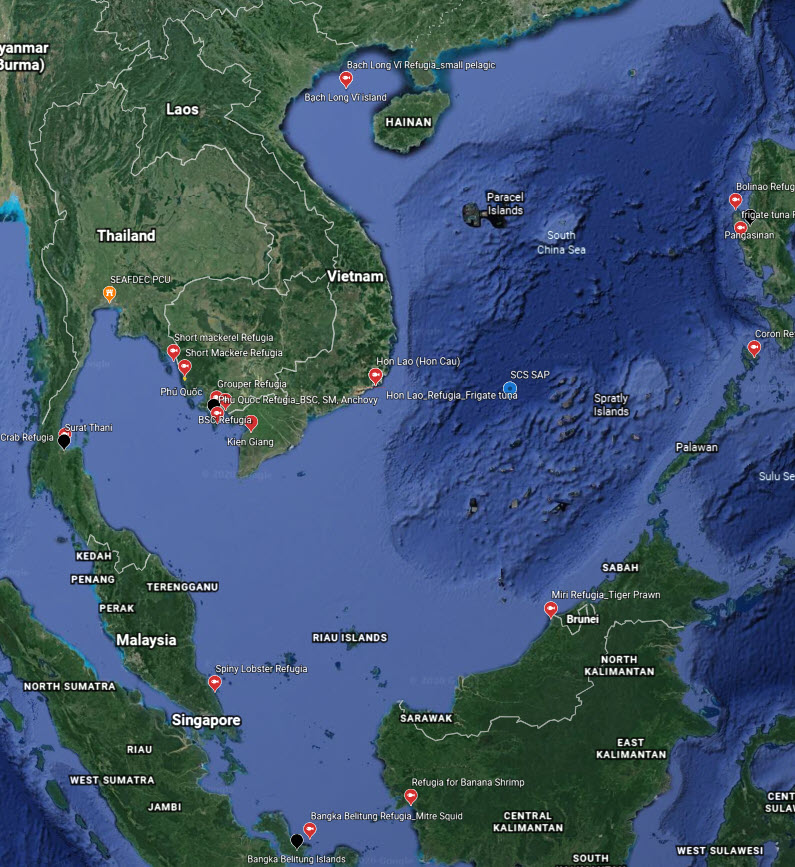 Click Here for
Click Here for More
Information
SCS SAP PRIORITY SITES (Habitat Linkages)
 All SCS SAP and
All SCS SAP and Fisheries Refugia
Priority Sites CHINA HABITAT
SITES CAMBODIA HABITAT
SITES INDONESIA HABITAT
SITES PHILIPPINES HABITAT
SITES THAILAND HABITAT
SITES VIET NAM HABITAT
SITES
Meet our Stakeholders
Social Media
Social Media
MANAGING THE SHORT MACKEREL FISHERIES IN A TRANSBOUNDARY SETTING : GEF-UNEP/SEAFDEC Fisheries Refugia Project
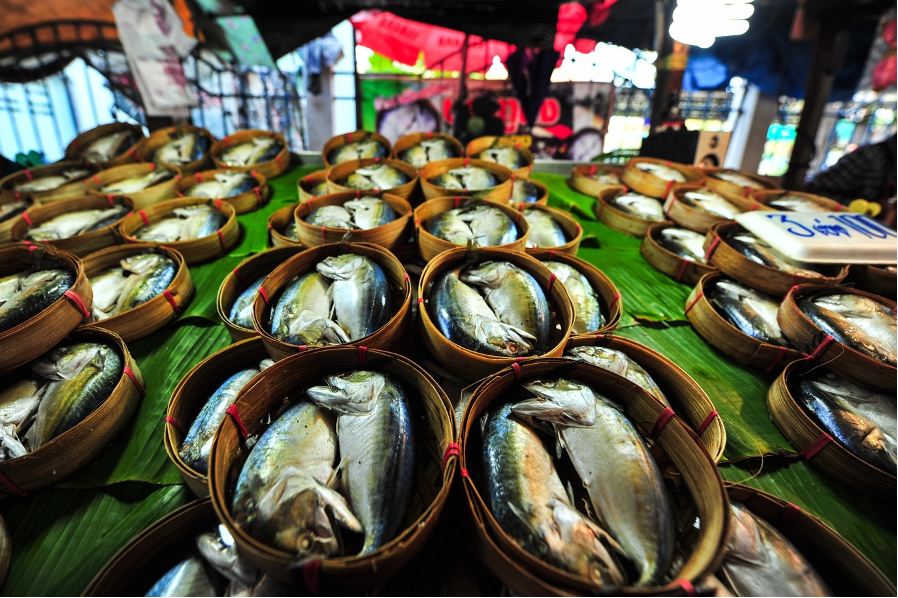
Streamed short-mackerel, famous Traditional recipes in Thailand and Cambodia |
The short mackerel (Rastrelliger brachysoma), also known as Indo-Pacific Mackerel, is among the most economically important small pelagic fishes, contributing to approximately 38% of the Southeast Asian Region’s total small pelagic fisheries production or 11% of total capture fisheries production in 2010. The decline in landing catch of the short mackerel in the South China Sea and the Gulf of Thailand Large Marine Ecosystem (LME) zooms into a crucial issue.
Highlights of the 4th Regional Scientific and Technical Committee Meeting (RSTC4)
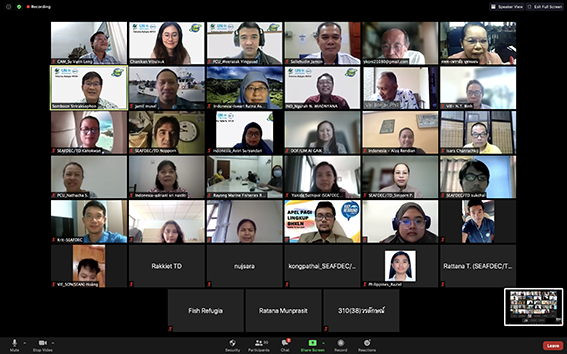 |
SEAFDEC/PCU organized the 4th Regional Scientific and Technical Committee Meeting (RSTC4) via Zoom Platform on July 22nd, 2021. The RSTC4 aims to harness the national scientific and technical expertise and knowledge required to inform the policy, legal and institutional reforms for fisheries refugia management in the South China Sea and the Gulf of Thailand. The RSTC4 was attended by National Scientific and Technical Focal Points from 6 participating countries, regional experts, scientists from national institutions, and SEAFDEC/Training Department. A total of 43 participants, including 21 females and 22 males.
A total of 70 activities at national and regional levels, implemented from 2020 to June 2021, are summarized. It highlights the achievements of the project implementation, particularly the planned outputs such as seven fisheries profiles, revision of fisheries law, regulation, fisheries management plan, strategic plan, and adoption of the Regional Action Plan for Short mackerel. Significantly, two adopted fisheries refugia in Cambodia together with a total of 5 tentative fisheries refugia in Malaysia (2), Thailand (2), and Cambodia (1). The activities-based progress in percentage and cumulative expenditure and co-financing to date from all executed partners are presented.
A highlight of the project implementations are as follows:
1) A total of 73 activities were conducted by six participating countries, namely Cambodia, Indonesia, Malaysia, Philippines, Thailand, and Viet Nam.
 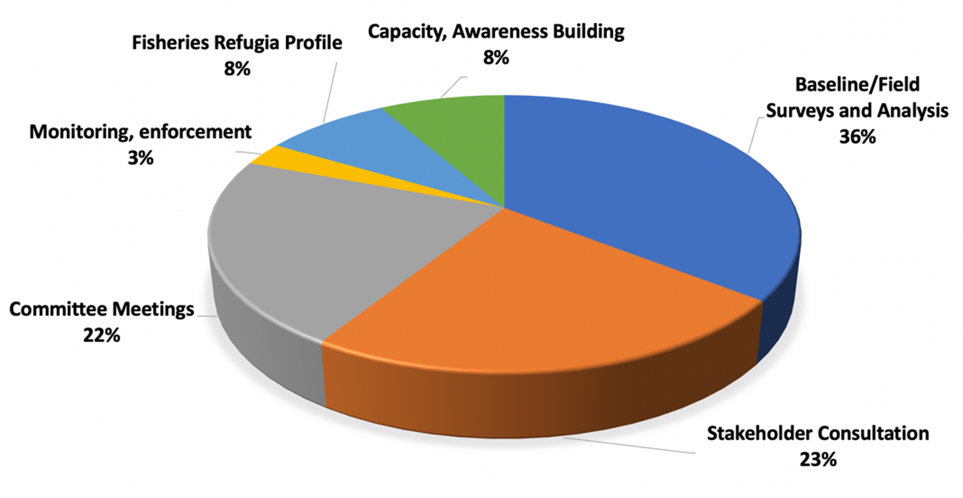 |
APPLYING THE OCEAN FORECASTING SYSTEM TO FISHERIES REFUGIA IMPLEMENTATION : GEF-UNEP/SEAFDEC Fisheries Refugia Project
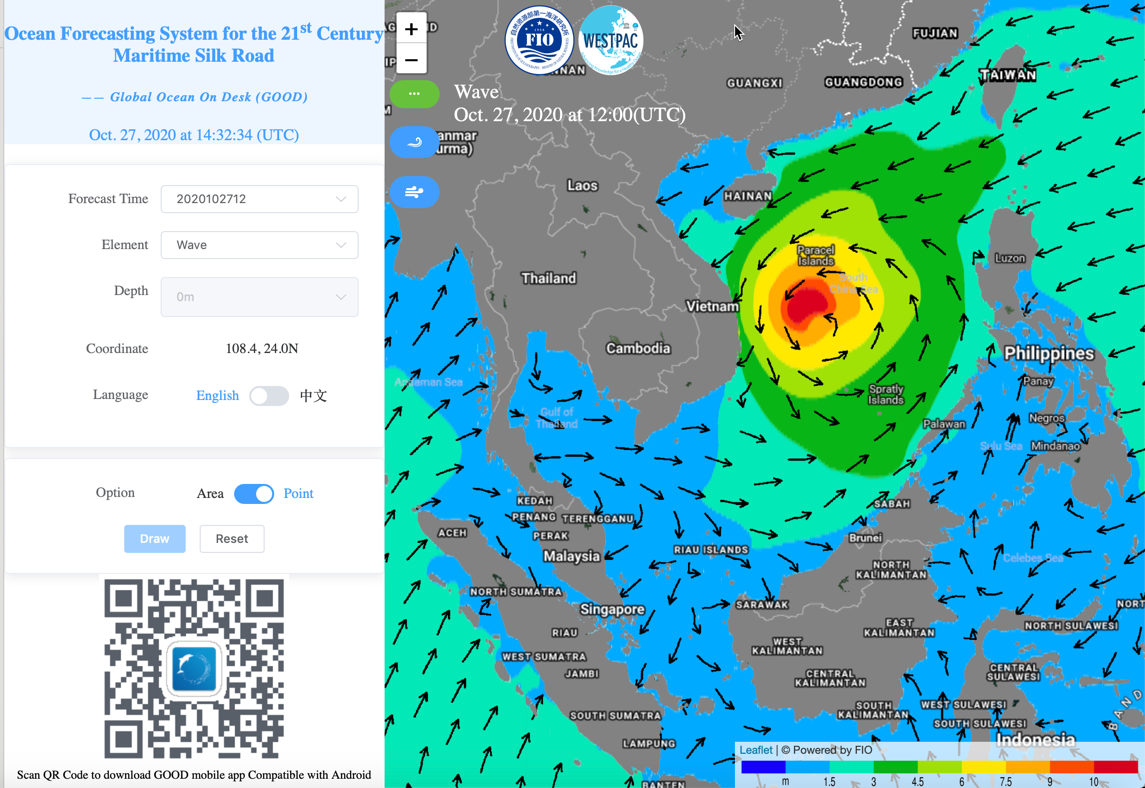 |
Acknowledgment to the
“Thailand-China Joint Laboratory for Climate and Marine Ecosystem” and Phuket Marine Biological Center/Thailand
This paper was introduced by Ms. Nuttida Chanthasiri, Researcher of Thailand-China Joint Laboratory for Climate and Marine Ecosystem, from Phuket Marine Biological Center at the 2nd Meeting of the Regional Scientific and Technical Committee of the SEAFDEC-UNEP-GEF Project on the Establishment and Operation of a Regional System of Fisheries Refugia in the South China Sea and the Gulf of Thailand, held in May 2019 in Kampot, Cambodia. Before her presentation, Mr. Somboon Siriraksophon, Project Director pointed out the importance of ocean modeling to support the establishment and operation of fisheries refugia at national and regional levels. He acknowledged the IOC/WESTPAC and other institution partners that have a long history of working in oceanic data management and developing the modeling system, which could help in predicting the habitats and fisheries resources changes. For example, algal bloom, coral reef bleaching, predicting sea temperature increase, larval dispersal, predicting the oil spill, etc. He also concluded the 2nd Meeting of the Project Steering Committee held in MIRI, Malaysia, in November 2019 supported the idea to apply the IOC/WESTPAC ocean modeling system to the Fisheries Refugia Project.
Changing Attitudes to Spark Action Towards Restoration of Blue Swimming Crab in Thailand : GEF-UNEP/SEAFDEC Fisheries Refugia Project
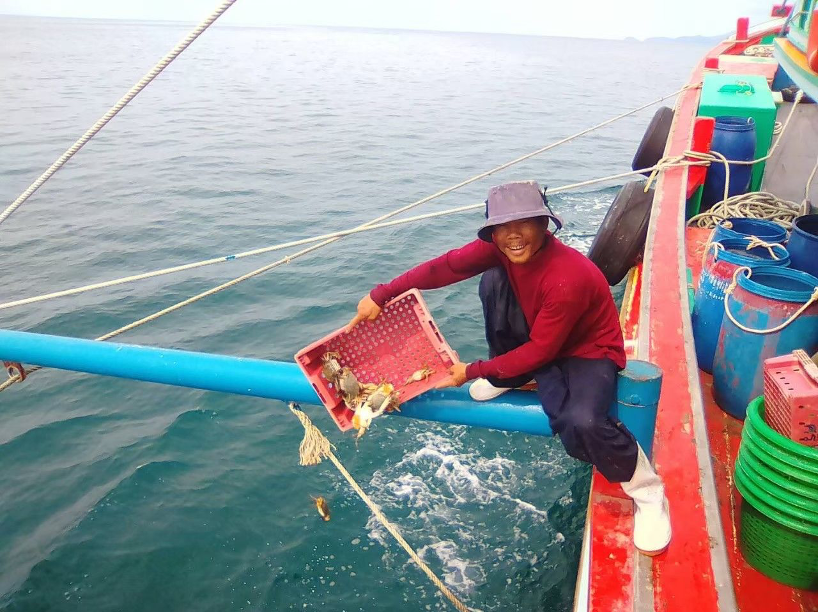
|
The South China Sea and the Gulf of Thailand contribute to high fisheries production, making many countries in the region among the top ten highest producers of fish in the world. It should note that fisheries are an important sector that creates a million jobs in the fisheries industry, produces seafood to the world market, helps a growing country economy, and improves livelihoods of people involved in fisheries. However, it is a fact that the perceived lack of responsible fishing practices and the resultant capture of vast quantities and diversity of non-target species significant effect on the ecosystem. Besides, overfishing threatens fish stocks regionally, reduces biodiversity, alters the ecosystem functioning, and jeopardizes the food security and livelihoods of people. The following describes how one can support healthy oceans by increasing the Blue Swimming Crabs stock changing fishermen attitudes towards responsible fisheries and ecosystem-based approach and usage of social media for effective communication. Even though it addresses one facet of the problematic, it impacts the world oceans is truly transformational; hence we would like to share with the world oceans community on the crucial "WORLD OCEANS DAY."
LET'S JOIN US TO CELEBRATE
UN WORLD OCEANS DAY
8th June 2020
UN WORLD OCEANS DAY
8th June 2020
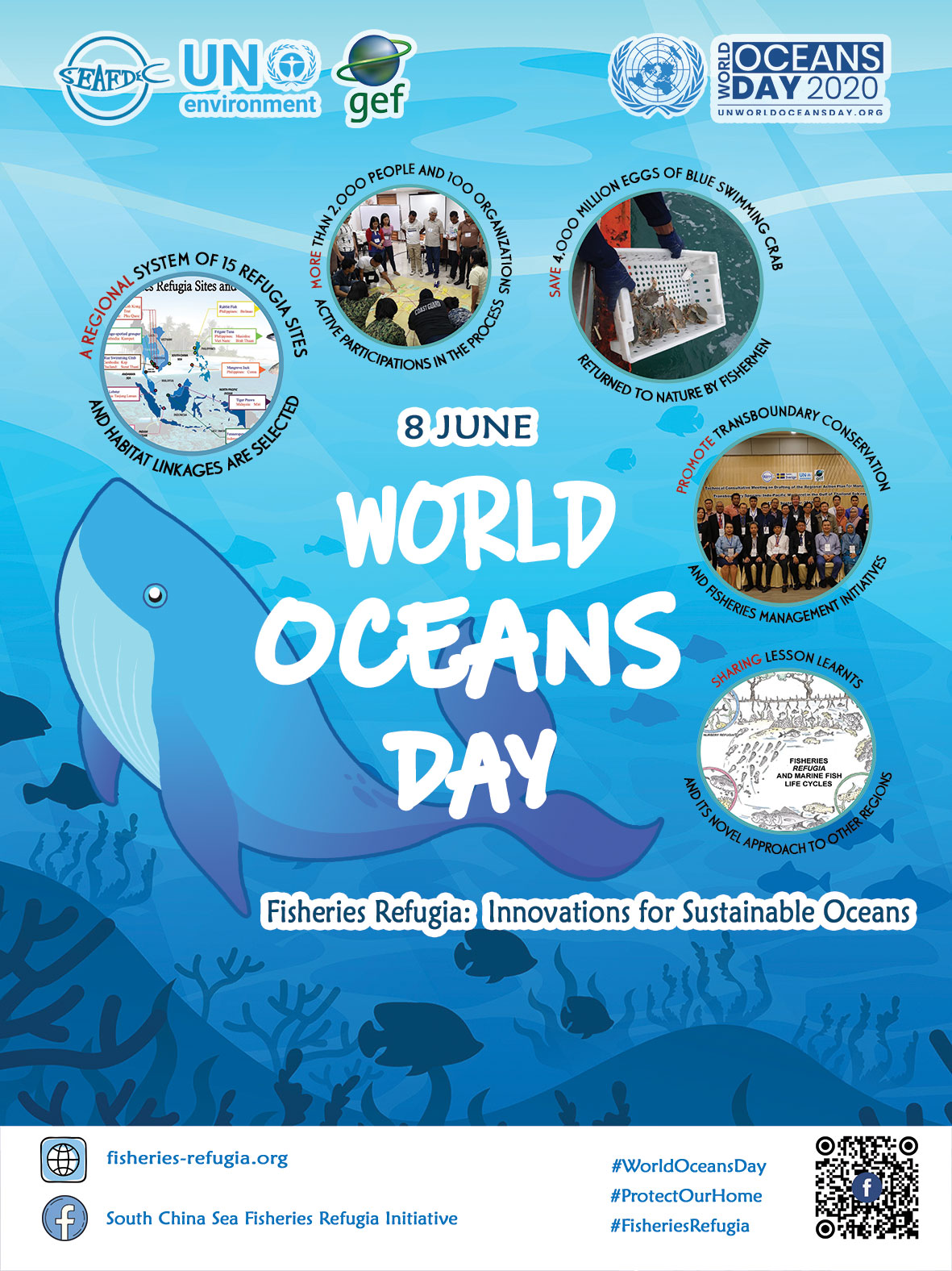
|
The 2nd Regional Scientific and Technical Committee Meeting at Kampot Province in Cambodia : GEF-UNEP/SEAFDEC Fisheries Refugia Project

|
Fisheries Administration of Cambodia (FiA) hosted the 2nd Meeting of the Regional Scientific and Technical Committee Meeting (RSTC2) at Thansur Sokha Hotel, Kampot Province Cambodia on 21st – 23rd May 2019. This biannual meeting is one of the regional activities under the SEAFDEC/UNEP/GEF Project on Establishment and Operation of a Regional System of Fisheries Refugia in the South China Sea and the Gulf of Thailand with aims to overseeing the scientific and technical elements of the project; ensuring effective implementation of activities undertaken during project execution, and providing sound scientific and technical advice to the Project Steering Committee. The meeting invited all national scientific and technical focal points and regional experts from various institutions such as the IOC/Westpac-SEAGOOS project, Research, and Development Division of the Training Department, Chulalongkorn University, as well as our partners from the SEAFDEC Sweden project and SEAFDEC/JTF projects. The highlights of the discussion are the updated national activities on the establishment of a Regional System of Fisheries Refugia by 4 Member States namely Cambodia, Malaysia, Philippines, and Thailand during the past years till 1st Quarter of 2019. It is also noted that Viet Nam and Indonesia will start the project implementation from the third quarter of 2019 after signing the Letter of Agreement and revision of the national project activities and work plans for 2019-2020. There are several issues on the Data and Information needs to support the activities were addressed as follows:
Department of Fisheries Malaysia in Cooperation with the SEAFDEC/PCU convenes the Second Project Steering Committee Meeting (PSC2) in Miri, Sarawak
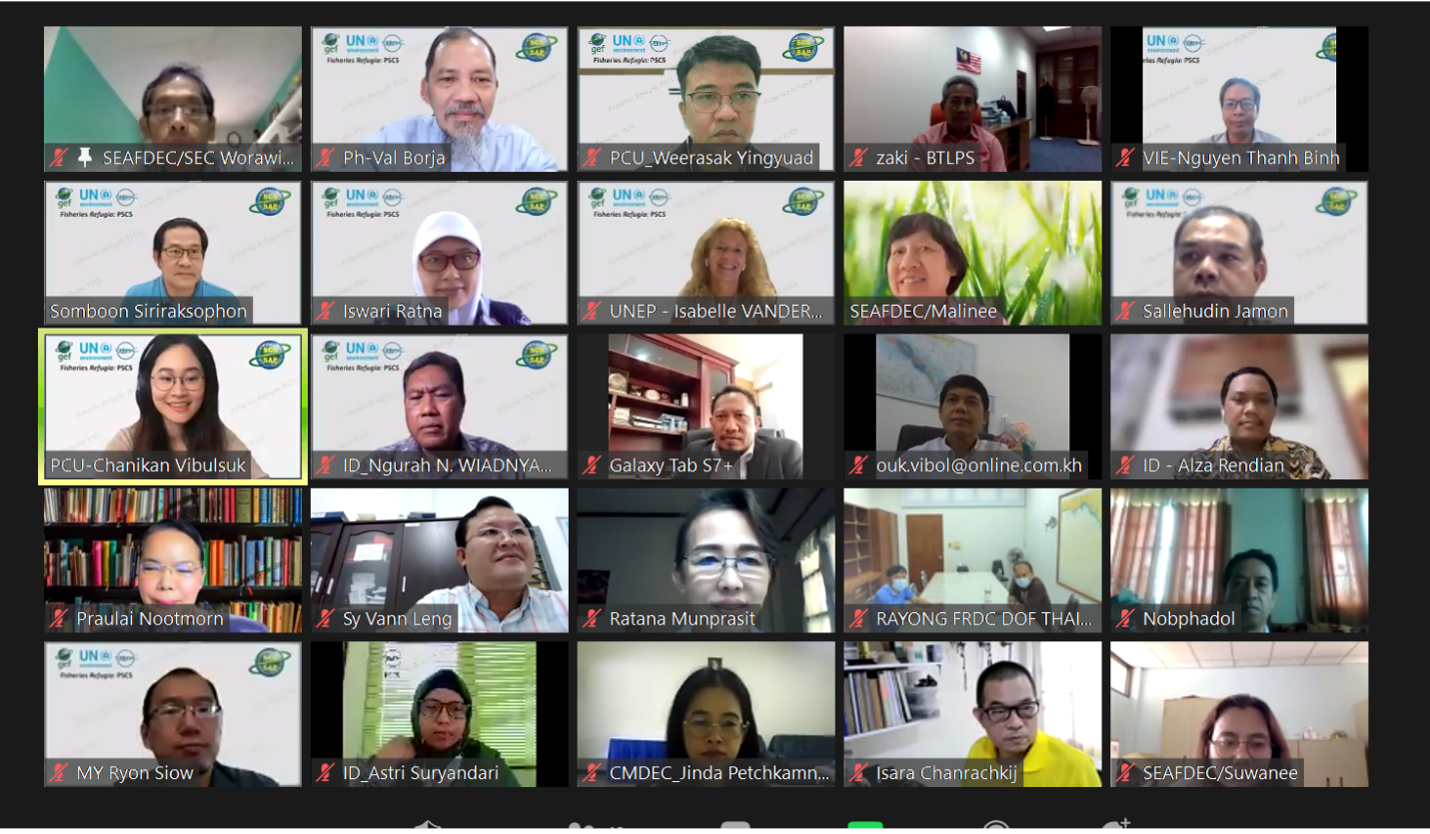 |
The Second Meeting of the Project Steering Committee (PSC2) for the SEAFDEC/UNEP/GEF Project on Establishment and Operation of a Regional System of Fisheries Refugia in the South China Sea and Gulf of Thailand was organized at Pullman Hotels and Resorts, Miri City, Sarawak, Malaysia from 5-6 November 2019. Hosted by the Department of Fisheries of Malaysia, in cooperation with the SEAFDEC Project Coordinating Unit (PCU), the PCS2 discussed on the progress of works and review the issues raised for consideration and approval by the Committee such as Regional Action Plan for management of Indo-pacific Mackerel, Guidelines for Indicators for management of fisheries refugia, financial matters, regional activities for 2020 and onwards, project management, financial matter, and other relevant matter. The Meeting was attended by all Project National Focal Point and all National Scientific and Technical Focal Point from 5 participating countries: Cambodia, Indonesia, Malaysia, Philippines, and Thailand, including Ms. Isabelle Vanderbeck: the project task manager from UNEP via skype; Ms. Malinee Smithrithee: the SEAFDEC Secretary-General, observers, and the Project Director and staffs of the PCU.
For more information, please click here
Technical Training for FiA Officers on Biological Studies of Short Mackerel
GEF-UNEP/SEAFDEC Fisheries Refugia Project
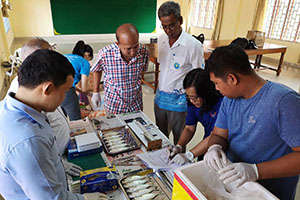 |
During February 12-14, 2019, the Project Coordinating Unit (PCU) of the SEAFDEC/UNEP/GEF Project on “Establishment and Operation of a Regional System of Fisheries Refugia in the South China Sea and the Gulf of Thailand”, in collaboration with Fisheries Administration (FiA) of Cambodia, conducted a Technical Training on Biological Studies of Short Mackerel (Rastrelliger brachysoma) in the coastal water Cambodia. There were 9 participants who attended this training including 3 officers from the Fisheries Administration (FiA), Cambodia, and 3 fisheries officers from the fisheries cantonment of Koh Kong Province, and 1 fisheries officer from Preah Sihanouk, Kampot, and Kep Province, Cambodia.
Joint effort on the Sustainability of Transboundary Species: Indo-Pacific Mackerel (Rastrelliger brachysoma)

|
Indo-Pacific mackerel (Rastrelliger brachysoma) is an economically important species of the Southeast Asian region, which migrates around the Gulf of Thailand (GOT). However, the trends are declining and catches are becoming unstable. Aiming at sustainable fishery resource, healthy habitats as well as ensured well-being of fishing communities, the Technical Consultative Meeting on Drafting of the Regional Action Plan for Management of Transboundary Species: Indo-Pacific Mackerel (Rastrelliger brachysoma) in the Gulf of Thailand Sub-region was held on 12-13 September 2019 in Chonburi Province, Thailand. The attendees of the Meeting were representatives from the countries of the Gulf of Thailand and South China Sea sub-regions including Cambodia, Indonesia, Malaysia, Philippines, Thailand, and Viet Nam, resource persons from Sweden, Burapha University, as well as SEAFDEC officials and Regional Fisheries Policy Network members.
This Meeting was a joint effort between the SEAFDEC-Sweden Project and SEAFDEC/UNEP/GEF/ Fisheries Refugia Project to develop the Regional Action Plan for Indo-Pacific mackerel management. Both Projects have conducted several activities such as DNA studies, data collection, among others to understand the stock and habitats of R. brachysoma. The Regional Action Plan would provide a direction within and among countries of the Southeast Asian region to work together in developing appropriate management of Indo-Pacific mackerel based on scientific information.
For more information, please check here
Site visiting to SEAFDEC/TD during the 1st PSC Meeting
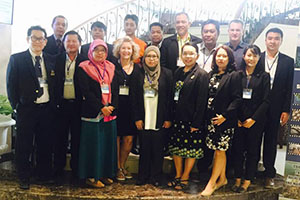
|
During December 4-5, 2018, The Project Coordinating Unit (PCU) had organized the 1st Annual Meeting of the Regional Project Steering Committee Meeting for the SEAFDEC/UN Environment/GEF Project on Establishment and Operation of a Regional System of Fisheries Refugia in the South China Sea and Gulf of Thailand, which was conducted in Bangkok, Thailand. Many participants attended the meeting included; One (1) Delegate from UNEP, Two (2) regional experts, Two (2) delegates each from Cambodia, Malaysia, Thailand, Three (3) delegates from Indonesia, one (1) delegate from Philippine, and the PCU staffs.
